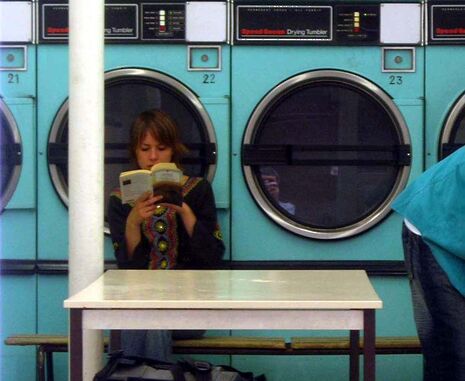Dealing with stress
Raisa Ostapenko shares her personal methods for stress-relief

What is stress? Is it a feeling of pressure? Is it a sense of emotional and psychological strain? Does it result from external stimuli or is it born of expectations that we have set for ourselves? It is likely that every person who attempts to respond to these questions will have their own answer, an answer as individual as their stress-inducing experiences and as personal as their stress-relieving methods.
What is unlikely, however, is that any person will suggest that stress is a positive facet of their life. A glance at the term’s etymology (and that of its all-too-familiar cognate ‘distress’), is sufficient to understand the potential seriousness of stress. Coming from the Old French estresse/estrece (meaning narrowness or oppression), and related to the Latin stringere (meaning to draw tight or to tighten), the concept of stress is evidently tied to feelings of limitation, tension, and maybe even mental claustrophobia.
Stress can reduce productivity, cloud judgment, lead to anxiety or depression, and even give rise to feelings of loneliness and hopelessness, which is why it is essential for people to develop effective coping mechanisms to liberate themselves from this potentially debilitating force. At Cambridge, where we are subject to both self-induced and external sources of stress, finding ways to cope is even more important for our well-being and success. I, like most people, have cultivated stress-relieving methods and share them in the hope that they may work for you too.
Doing laundry

Yes, it sounds a bit odd, but I find comfort in doing laundry on a Friday evening. Setting aside two hours to wash, iron, and fold clothing offers me an excellent opportunity to be alone and to think in silence. It's also a task requiring minimal mental acuity and gives me a sense of much-needed achievement when its done. Laundry is also usually the last chore I do before indulging in exciting weekend activities, so I have inadvertently conditioned my mind into associating laundry with enjoyable things.
Have a night in with Audrey Hepburn

It might be her sophisticated fashion sense, or her heartfelt laughter, or it might just be the pleasure of hearing someone say: “It should take you exactly four seconds to cross from here to that door. I’ll give you two,” but watching Audrey Hepburn’s films is one of the most calming activities that I can envision. Whether she’s the wide-eyed ingenue Sabrina, or the cheroot-smoking Holly Golightly in Breakfast at Tiffany’s, watching Audrey light up whatever movie she’s in distracts me from any stress I’m feeling and imbues me with a feeling of joy.
Reading fairytales

When I was fifteen years old, my mother bought me a beautiful, leather-bound, gold-trimmed collector’s edition of Grimm’s Complete Fairytales. Throughout my adolescence, I found great comfort in its pages, in reading of faraway places, of beautiful kingdoms and magical forests, of lands in which good always prevailed over evil, despite the obstacles the protagonists encountered along the way. Of course, life is not a fairytale, and expecting it to be so is far from sensible, but, if anything, the purpose of fairytales is to inspire the hope that, even in the gloomiest of circumstances, there can be a happy ending. Fairytales are an excellent reminder that perseverance, kindness, and honesty are admirable traits, and that achieving your dreams requires taking action and fighting for what you believe in.
 News / Clare Hall spent over £500k opposing busway 24 December 2025
News / Clare Hall spent over £500k opposing busway 24 December 2025 Comment / The ‘class’ of Cambridge24 December 2025
Comment / The ‘class’ of Cambridge24 December 2025 News / Caius mourns its tree-mendous loss23 December 2025
News / Caius mourns its tree-mendous loss23 December 2025 Comment / Yes, I’m brown – but I have more important things to say22 December 2025
Comment / Yes, I’m brown – but I have more important things to say22 December 2025 News / Girton JCR publishes open letter expressing solidarity with Palestine25 December 2025
News / Girton JCR publishes open letter expressing solidarity with Palestine25 December 2025









